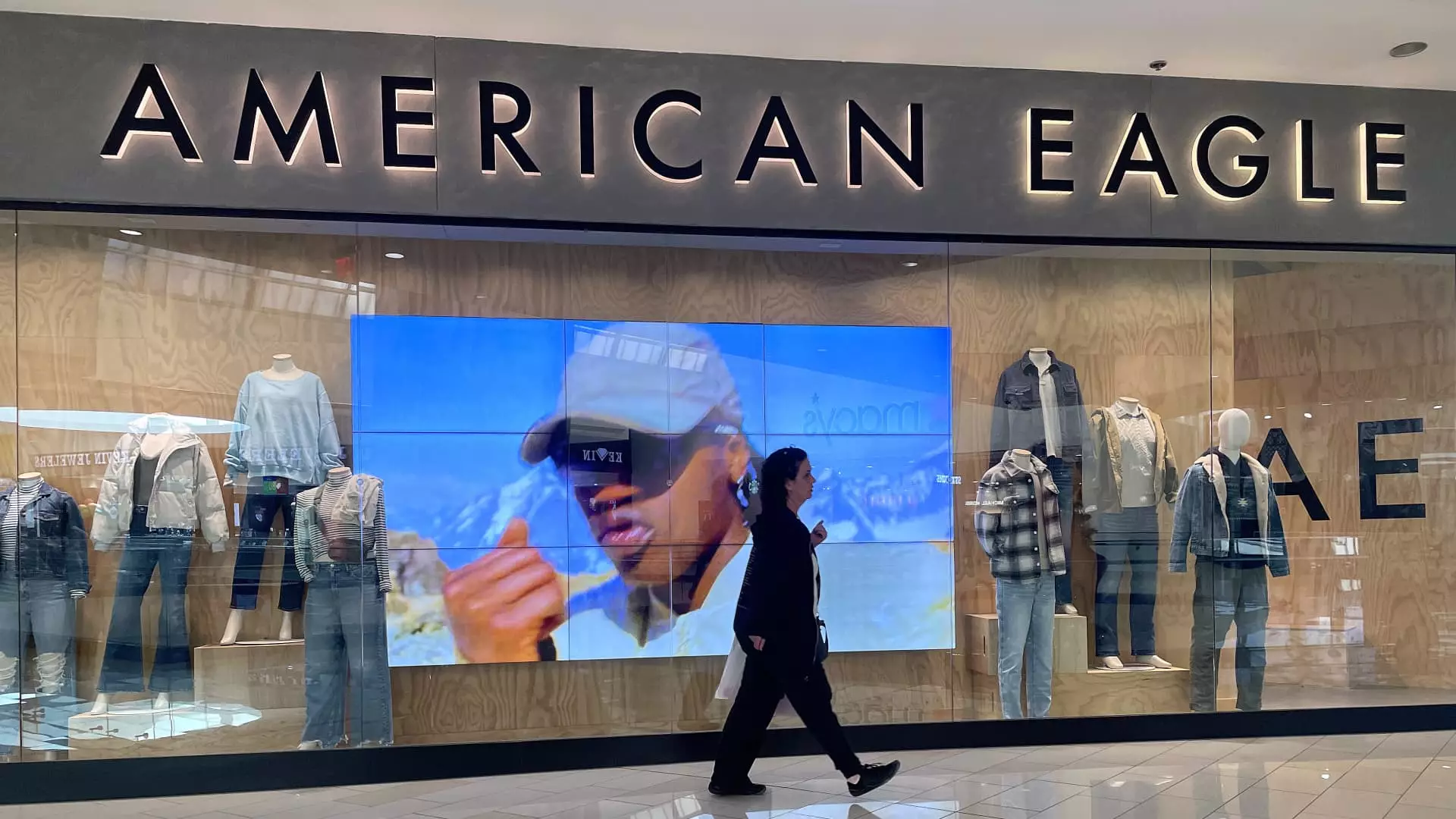In a move that highlights the ongoing conflict between established brands and e-commerce giants, American Eagle Outfitters has taken legal action against Amazon, claiming trademark infringement. This lawsuit is not merely a clash of logos; it embodies the intricate struggles that companies face in protecting their brand identities in a rapidly digitalizing world. American Eagle alleges that Amazon has engaged in “flagrant, unauthorized use” of its Aerie branding, a clothing line known for its focus on comfort and body positivity. This article explores the implications of this lawsuit, the backstory of the companies involved, and the broader context regarding counterfeiting issues in the online marketplace.
American Eagle filed its lawsuit in the U.S. District Court for the Southern District of New York, a venue known for handling significant corporate litigation. The complaint suggests that Amazon utilized Aerie’s trademarks without permission, leading potential customers down a path that ultimately results in the purchase of “inferior quality knock-offs” rather than authentic Aerie products. According to American Eagle, consumers searching for Aerie merchandise could find Amazon appearing prominently in search results, misleading them to believe that the e-commerce platform was an official retailer of the brand.
The lawsuit claims that Amazon redirected traffic to its platform under the guise of selling Aerie products, only to offer alternate items that were not reflective of the quality associated with Aerie. The accuser indicates that this has been a deliberate strategy by Amazon to capture traffic for its own marketplace rather than serving the interests of the consumer.
The Aerie brand, launched in 2006 as a sister line to American Eagle, has become synonymous with body positivity and inclusivity. Having intentionally chosen to foster a distinct brand experience apart from its parent company, American Eagle is adamant that the unauthorized use of its trademarks jeopardizes its carefully cultivated identity. This scenario underscores the importance of brand integrity in an era where the line between originality and imitation can be paper-thin, particularly in crowded online marketplaces.
The legal filing details how American Eagle’s Aerie athletic wear and lingerie products have been overshadowed by falsely advertised products on Amazon, which employ slight alterations in spelling to feign authenticity. Such tactics not only breach trademark laws but ultimately confuse customers, detracting from Aerie’s established identity and integrity in the market.
Industry-Wide Implications
This lawsuit is not an isolated incident. It reflects a larger problem that many brands face—issues of counterfeiting and unauthorized reselling on platforms like Amazon. In fact, American Eagle is not the first company to raise concerns about the authenticity of products sold on Amazon’s marketplace. Companies such as Birkenstock and Daimler AG have previously reported similar grievances regarding counterfeit products proliferating on the e-commerce giant’s platform. This ongoing issue has prompted multiple companies to reconsider their selling strategies online, with some even deciding to pull their products from Amazon entirely.
Amazon’s own efforts to combat counterfeiting, including the establishment of teams aimed at policing the marketplace, highlight the seriousness with which it has begun to address these concerns. However, this does not negate the risks involved for businesses that lack the resources to protect their intellectual property.
The ramifications of American Eagle’s lawsuit against Amazon extend beyond the immediate financial damages sought. The outcome could set significant legal precedents regarding trademark protection in the digital era, illuminating the responsibilities that platforms hold in curtailing misinformation and counterfeit presentations of genuine brands. As e-commerce continues to evolve, the relationship between brands and platforms will likely become an ever-critical area of focus.
American Eagle’s claim against Amazon reminds all the players in the e-commerce landscape to remain vigilant and proactive in safeguarding their identities. In an online world rife with competition, maintaining authenticity and consumer trust remains paramount, making this legal battle one to watch closely as it unfolds.

